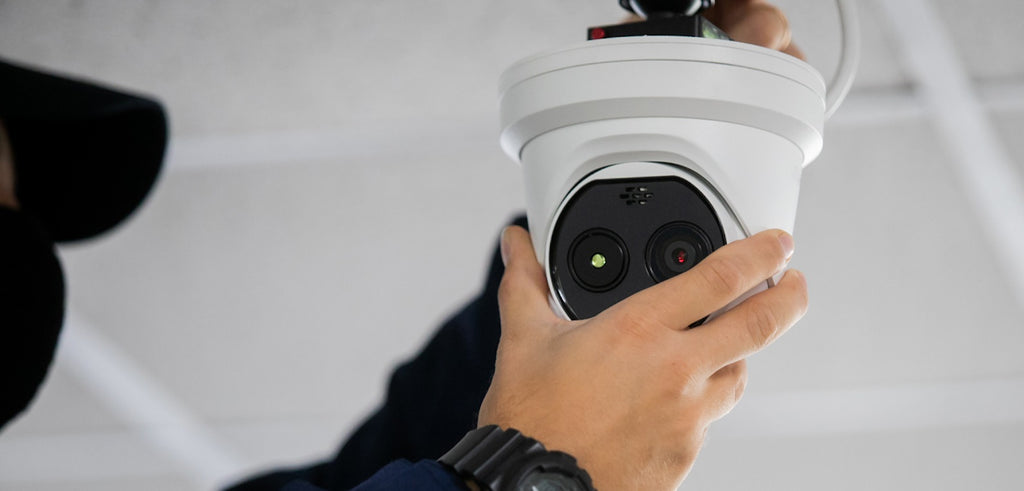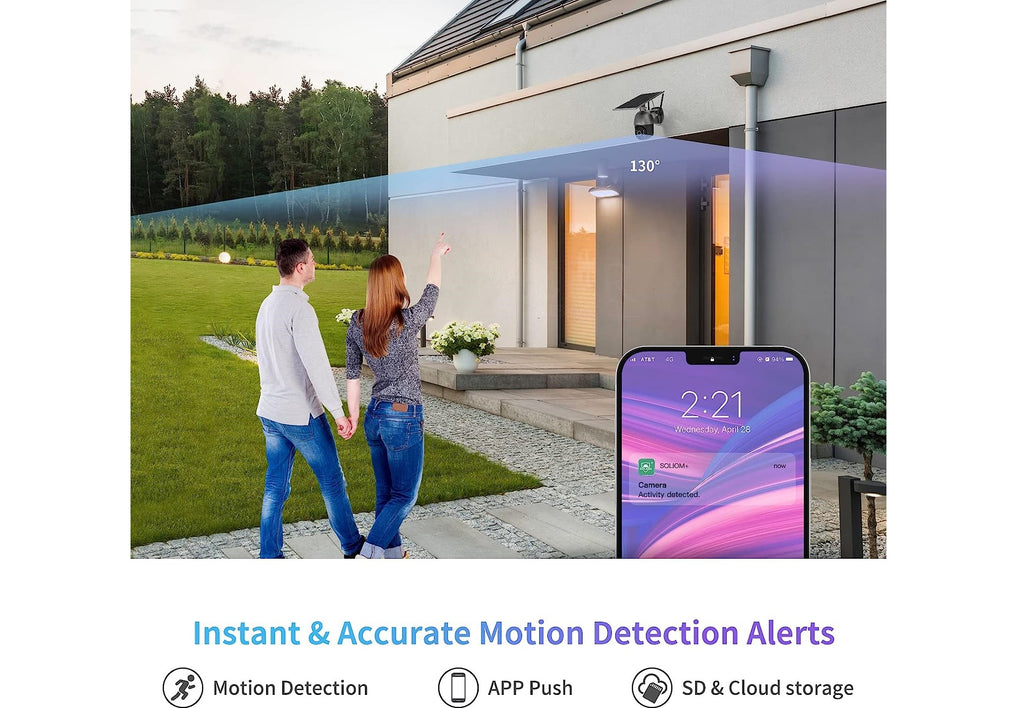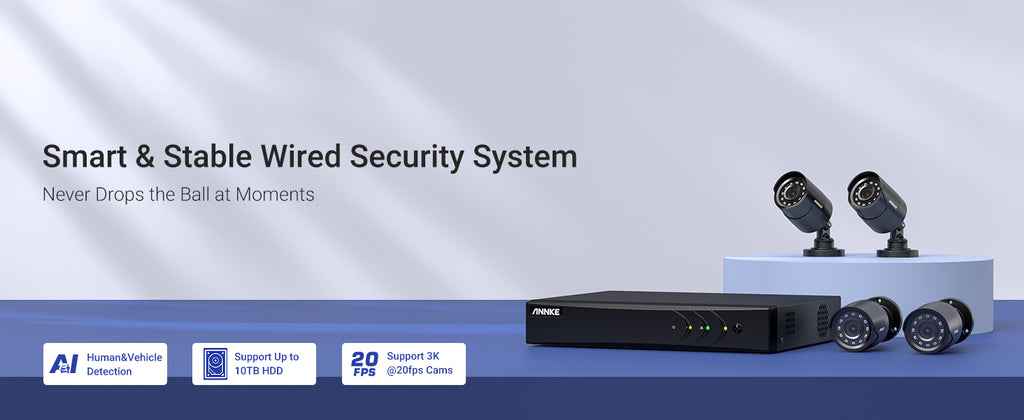Security cameras are like the superheroes of our homes and businesses, guarding our spaces with unwavering vigilance.
But here's the million-dollar question that often stumps even the savviest of tech enthusiasts: Do you really need Wi-Fi for security cameras?
Well, buckle up, because we're about to embark on a journey through the tangled web of Wi-Fi and surveillance. Spoiler alert: the answer isn't a straightforward yes or no. While Wi-Fi reigns supreme as the go-to connection for most security setups, it's not the only game in town.
In this post, we unravel the mysteries of Wi-Fi versus alternative connections for security cameras. We'll weigh the pros and cons of each option, empowering you to make the best choice for your security needs.
Benefits of Wi-Fi Security Cameras: Convenience and Connectivity
Wi-Fi offers a plethora of benefits for security cameras, making it the preferred choice for many users:
Remote Access
Wi-Fi allows you to view live footage, receive motion alerts, and control your cameras remotely using a smartphone app or web interface. This real-time monitoring provides peace of mind, especially when you're away from home or work.
Easy Setup
Setting up Wi-Fi-enabled cameras is often faster and more straightforward than alternative options. They typically connect effortlessly to your existing Wi-Fi network, eliminating the need for complex wiring configurations.
Cost-Effective
Wi-Fi cameras are generally more affordable than their non-Wi-Fi counterparts, making them an accessible option for a wider range of budgets.
Drawbacks of Wi-Fi Security Cameras: Signal Reliance and Range
Reliance on Internet Connection
inoperable
Security Concerns
hacking
Limited Range
strength and reach of your Wi-Fi signal

Beyond Wi-Fi: Exploring Alternative Connections
Cellular Connectivity
reliable connectivity even in the absence of Wi-Firecurring costs
Closed-Circuit Television (CCTV) Systems
coaxial cablesstandalone functionalitymore complex to set up and maintain
Comparison: Key Considerations for Each Connection Type
| Connection Type | Advantages | Disadvantages |
Security Camera Reviews
Best Security Camera without Subscription | Best Security Camera for RV | Best Security Camera for 24 Hour Recording | Best Hidden Cameras | Best Solar Security Camera
How to Choose the Right Security Camera Connection for Your Needs
- Budget:
- Technical Expertise:
- Internet Reliability:
- Security Concerns:
Remember, security is an ongoing journey.
ANNKEAI Surveillance System CHECK PRICE
Do You Need Wifi for Security Cameras? FAQs
Can I get security camera without Wi-Fi?
Yes, there are security cameras that don't require Wi-Fi.
- Cellular-enabled cameras:
- Closed-circuit television (CCTV) systems:
Can a CCTV work without Wi-Fi?
Yes, CCTV systems can function without Wi-Fi.
Do wired security cameras need internet?
Not all wired security cameras require an internet connection.
- CCTV systems:
- Wired cameras with local storage:
What internet do you need for security cameras?
The type of internet you need for security cameras depends on the specific camera and its features.
- Wi-Fi cameras:
- Cellular-enabled cameras:
How can I set up a camera without Wi-Fi?
Setting up a camera without Wi-Fi depends on the type of camera you have:
- Cellular-enabled cameras:
- CCTV systems:
What are the disadvantages of wireless cameras?
While convenient, wireless cameras come with some disadvantages:
- Reliance on Wi-Fi:
- Security vulnerabilities:
- Limited range:
Will turning off Wi-Fi disable cameras?
Turning off Wi-Fi will disable most Wi-Fi-dependent cameras.
Home Security
Local vs Cloud Storage for Security FootageDIY Security Camera InstallationSensors Apartment InstallationSensors installation on apartment windowsSmart solutions for balcony doorsSmart Smoke Detectors Benefits |Surveillance vs Security
Why can't I see my security cameras on my phone?
Several reasons could explain why you can't see your security cameras on your phone:
- Wi-Fi connectivity issues:
- App issues:
- Camera configuration problems:
Can CCTV work with mobile data?
No, CCTV systems typically don't work with mobile data directly.
How do wireless cameras get power?
Wireless cameras get their power through two main methods:
- Batteries:
- Power cables:
What is the difference between Wi-Fi camera and IP camera?
The terms "Wi-Fi camera" and "IP camera" are often used interchangeably, but there's a subtle difference.
- Wi-Fi camera:
- IP camera:
How can I watch my CCTV on my phone?
There are several ways to watch your CCTV footage on your phone:
- Dedicated app:
- Third-party apps:
- Web interface:
Why can't I view my security cameras online?
There can be multiple reasons why you can't view your security cameras online:
Internet connectivity issues
- Incorrect login credentials:
- Firewall restrictions:
Camera configuration problems
- Disabled remote access:
- Outdated firmware:
- Incorrect network settings:
Other potential causes
- Physical camera issues:
Can CCTV work in the dark?
Yes, many CCTV cameras come equipped with night vision capabilities.
Here are some additional factors to consider for night vision performance:
- IR illuminators:
- Minimum illumination:
- Range:
Home Security
Best PoE Security Camera SystemsBest NVR Camera SystemsBest Home Centric Smart SafesBest Doorbell Cameras for ApartmentsBest Smart Smoke DetectorsBest Smart Locks for AirbnbBest Smart Switch for AlexaBest Floodlight Camera without Subscription | Best Dash Cam for Truckers
How to install an NVR Camera SystemNVR Cameras GuideSmart Locks installationHow to Choose a Smart Lock for ApartmentCommon Smart Lock issuesSecurity IssuesHow to choose a Smart Door Lock for apartmentHow to install a Smart Door LockIndoor vs Outdoor Security CamerasDoorbell Cameras GuideSensors & Smart Hubs integrationAI Cameras
Do you need Wifi for Security Cameras ? Connection Guide, Pros & Cons













